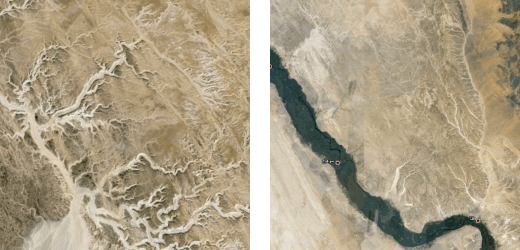Standing on Mount Nebo in Jordan where Moses first saw the "Promised Land" on the other bank of the River Jordan and Dead Sea, I could make barely out Jerusalem in the distant hills with Jericho in between. It was monotonous desert to the horizon. A few days before, we had flown from Cairo to Amman Jordan. From the air, we saw Egypt, the Sinai Peninsula, Israel, Jordan, the West Bank, Syria – small places by any standard, mostly desert, with a only a few slivers of green along the rivers – the Nile and the River Jordan. I had trouble getting my mind around the fact that this was where the great western religions were born, where rivers of blood have been spilled for thousands of years, as people fought to possess the barren land around the Dead Sea – the lowest point on earth. It felt too big to fit the stark terrain – the history, the wars, the religions. I know I’m not the first person to visit the Middle East who felt dwarfed by all the visible history from these great civilizations all piled on top of each other in the few habitable regions of that vast desert. Later, we’d see another amazing site – the city of Petra hidden in a faultline in a mountain in Jordan. As if the monuments of the Pharaohs, Greeks, Romans, and early Christians weren’t enough, Petra was from yet another civilization I’d never even heard of – the Nabataeans.

But now it’s the culture of the Ottoman Turks who spread Islam over the whole region that overrides that of the builders of these ancient monuments. There’s still a powerful religious coloring to life in these countries. It’s just a different religion. Egypt is 80% Sunni Muslim and 20% Christian. In Jordan, it’s more like 95%/5%. The call to prayer blares from speakers on the multiple Minarets five times a day. Often, they are saying different things, in different keys, out of sync with each other. So it sounds like an atonal symphony in a bad dream. The majority of women are scarfed with arms and legs covered. A small minority of women wear all black – robes, gloves, veils, and scarves. On the other end of the spectrum are colorful scarves, tight sweaters, tighter jeans, and high heel boots. There’s a wide variance in between. Men and women show no affection when walking together, though male friends and female friends often walk arm-in-arm.
In everyday conversation, religious phrasing is the rule. Any future event is followed by in shah Allah [God willing]. Any past event that turned out right gets a "Thank goodness" [thanks be to God]. All things are in Allah’s hands, and require thanks and acknowledgment. In a public school we visited, in Egypt, the library shelf was over half filled with copies of the Quran and the Sadith [stories of the Prophet]. There are courses in Islam three days a week [non-Muslims are excused from these classes on request]. For obvious reasons, when they spoke to us, there was frequent mention that Terrorists were "Extremists" who perverted the teachings of Mohamed, often backed up with quotes or stories from the various texts.
While these are secular countries, the religious teaching informs the laws in a variety of ways. In some areas, judgment is harsh. Drug dealers are hanged. So are most murderers, except in cases of honor killings – a family who murders a daughter for having sex outside of marriage – or a husband who kills his adulterous wife and her lover. Such people get light sentences. Other laws come from the Quran directly. You can be imprisoned for not taking care of elderly parents, for example. It’s all pretty foreign to the western ear. There are liquor stores near the hotels, but alcohol is forbidden in Muslim life. There are no homeless people, but plenty of poverty [in Egypt]. Unfortunate people are taken in somewhere, somehow. Health Care is free for the poor [but better if you’re insured]. No one presents as a thug so there’s no "street look." The pick-pockets and petty thieves are treated harshly under the law. Policemen are all over the place, often armed with Uzis or automatic pistols, particularly the "tourist and antiquities" police.
It’s all very foreign to us, so we ask questions, primarily about the place of women in their society and about "Terrorism." They know what questions Americans ask, and seem amused by them. In spite of the obvious differences in the place of men and women in their society, they laugh off our questions about equality – men and women alike. The women explain the head covering as a choice. They speak proudly of the equality in education for men and women. For example, the manager of our Nile boat introduced his staff, and was proud to tell us that he had one "girl" among the crew of 70+.
One encounter stood out to me. Part of our tour was a home visit in each country. In Jordan, we were in "high cotton" – a beautiful apartment that seemed to be made of marble and was beautifully appointed. The man of the house was a distinguished and traveled stock broker. He was well spoken and answered all our questions with glowing descriptions of the Jordanian system. His daughter, an electronic engineer who works for Oracle joined us – 24, living at home. They fielded the most challenging of questions with great facility. He was a proud man, humble in the Muslim way, but very sure of himself. Somehow, he got to talking about the Crusades and pointed out that the Christian Crusaders were ingenuous. "It wasn’t about religion. It was greed and conquest." [I found myself thinking about Bush’s invasion of Iraq]. He went on. "On the first day, the Crusaders killed 70,000 in Jerusalem. The streets ran with blood up to the horses knees." Well, I sure didn’t know that. Later he was talking about the wonders of the Quran. "There’s a chapter that tells of the moon being two pieces that came together. Recently, scientists have confirmed that there’s a rift on the moon where the pieces joined." Later "There’s a chapter in the Quran that tells us that iron comes to earth in the rain. Recently, scientists have confirmed that rainwater contains traces of iron, just as the Prophet said." His knowing smile was a bit hard to return [this time, I was thinking about the Creation Museum in Kentucky].
But my point is that this very eloquent man, an obvious high roller, got onto these topics [the Crusades, the Moon, the iron in the water] all by himself with no prompting on our part. He was neither a kook nor an extremist. He was obviously quoting things from his Quran-study classes. Interestingly, his wife and daughter left the room when he began to hit such topics, particularly when he talked of total equality between the sexes. His wife nodded approvingly but seemed to roll her eyes. This kind of reference to the Quran came up frequently everywhere. And everyone we asked went out of their way to assure us that Terrorism was not real Islam, usually with stories from Mohamed’s teachings.
I was impressed with the genuine piety of the Muslim world, and pleasantly surprised with the general morality and friendliness of the people. I believe that the religion and its founder preach a genuine kindness and compassion. There is a refreshing tolerance of others and of other religions. But through it all, there is a self-righteousness and a sense of absolute rightness that reminded me of the of our American Christian Fundamentalists. And I’m completely sure that I could visit a cave in Pakistan and would hear the same message of kindness and piety from Osama bin Laden, and then hear passages from the Quran quoted that explained suicide bombings and what we call Terrorism as acts of the highest morality, followed by that same knowing smile. So to my way of thinking, Islam is more than religion. It’s a total view of all aspects of life, and its pious followers are vulnerable to the whims of characters like bin Laden or the Ottomans who conquered the Roman Empire. If a man who was as smart and as educated as our host could believe that the moon fused from two parts and that iron comes from the rain because "it is written in the Quran," then less informed people could believe almost anything. But my feelings were little different from how I feel about the rationalizations of many Fundamentalist American Christians.
I don’t know that the trip deepened my understanding of Islam, or history, or the Arab world, or 911. But, like other trips to far off lands, it demystified a lot. The Middle East is just a place full of people that are little different from the people down the road here in North Georgia. They do a lot of things differently, but the similarities way overwhelm the differences. For them, their great antiquities are simply a backdrop, much like the beautiful Appalachian mountains are for us – a part of the daily scenery that’s rarely consciously registered. And I actually felt that they spend their lives a lot closer to God than many religious people here.
Postscript: I had the nagging feeling that they understood 911 better than they admitted. Surely they knew that we were suspicious of their simply discounting al Qaeda as "extremists." Our Jordan guide addressed that once. He said that he knew Americans wondered why moderate Muslims did not denounce al Qaeda, or join in the fight to eradicate it. He said he thought they were afraid of retaliation from al Qaeda. Frankly, I didn’t buy that either. I think it was like the South I grew up in. While most southerners didn’t approve of the bombings, or lynchings, or other violence, the violent White Supremists were expressing something that was a piece of the minds of many southerners. And the modern antiabortionists may deny advocating the violence that lead to bombings and murders, but those "extremists" were expressing a widely held sentiment nonetheless. Likewise, I expect that many Muslim Arabs resent the intrusion of Westerners into the Middle East – things like Cheney’s "American Exceptionalism." So while they might be genuine in condemning the Terrorists, I expect they were complicit with the notion that we needed to be taken down a notch or two.



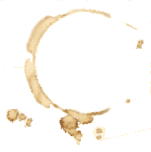
 The Iranian Revolution (Also known as the Islamic Revolution or 1979 Islamic Revolution, Persian: انقلاب اسلامی, EnghelÄbe EslÄmi) refers to events involving the overthrow of Iran’s monarchy under Shah Mohammad Reza Pahlavi and its replacement with an Islamic republic under Ayatollah Ruhollah Khomeini, the leader of the revolution. It has been called an event that "made Islamic fundamentalism a political force … from Morocco to Malaysia."
The Iranian Revolution (Also known as the Islamic Revolution or 1979 Islamic Revolution, Persian: انقلاب اسلامی, EnghelÄbe EslÄmi) refers to events involving the overthrow of Iran’s monarchy under Shah Mohammad Reza Pahlavi and its replacement with an Islamic republic under Ayatollah Ruhollah Khomeini, the leader of the revolution. It has been called an event that "made Islamic fundamentalism a political force … from Morocco to Malaysia."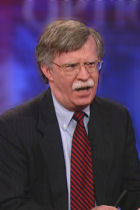 Iranian President Mahmoud Ahmedinejad yesterday
Iranian President Mahmoud Ahmedinejad yesterday 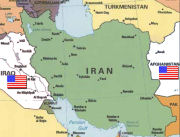 It’s called a
It’s called a  At last, I get to my point. The martyrdom of Husayn was seen as a clash between good and evil. Husayn was killed on a journey to fight oppression by a false leader. The rememberance is something like the Christian Penetentes or Flagellants who beat themselves to remember Jesus’ persecution. The fact that the
At last, I get to my point. The martyrdom of Husayn was seen as a clash between good and evil. Husayn was killed on a journey to fight oppression by a false leader. The rememberance is something like the Christian Penetentes or Flagellants who beat themselves to remember Jesus’ persecution. The fact that the  George Bush, Dick Cheney, and John Bolton seemed determined to try to shape the future of Iran [with their favorite methodology – bombs] just like they tried to create an Iraq in their own image. Obama seems to have more sense about them – sort of a walk softly but carry a big stick approach. The Arab people are smart cookies living in a harsh part of the world strapped with a more than confusing history. While they are a dangerous lot [Iran Hostage Crisis, 9/11, al Qaeda, PLO, Hamas, Hezbolla], it seems to me that our old policy towards the Communist Bloc [containment] is exactly what we need to do right now. The "Bush Doctrine" and Cheney’s "American Exceptionalism" were ill-conceived and total flops [worse than that even]. The people on the streets of Iran are going to prevail sooner or later. It’s just the way things work.
George Bush, Dick Cheney, and John Bolton seemed determined to try to shape the future of Iran [with their favorite methodology – bombs] just like they tried to create an Iraq in their own image. Obama seems to have more sense about them – sort of a walk softly but carry a big stick approach. The Arab people are smart cookies living in a harsh part of the world strapped with a more than confusing history. While they are a dangerous lot [Iran Hostage Crisis, 9/11, al Qaeda, PLO, Hamas, Hezbolla], it seems to me that our old policy towards the Communist Bloc [containment] is exactly what we need to do right now. The "Bush Doctrine" and Cheney’s "American Exceptionalism" were ill-conceived and total flops [worse than that even]. The people on the streets of Iran are going to prevail sooner or later. It’s just the way things work. 
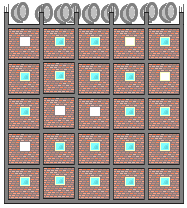 Another first impression – Cairo. Three things seem to part of a unified whole – population density, traffic, and smog. Prior to this trip, Mexico City and Beijing were vying for first place in my experience. But Cairo wins in all three hands down. The city is flat and covered with box-like high rises that are all sand and concrete colored, dirty, packed together, and monotonously constructed. They build concrete frameworks with floors and corners, then fill in the holes with bricks. Unoccupied apartments have nothing but holes for windows and are unfinished inside. The tops of the buildings are also unfinished and still have rebar sticking out [for the next floor]. They sprawl upwards. Apparently, unfinished buildings aren’t taxed, so they never finish them. All roofs are covered with Satellite Dishes in various state of rust, all pointing to the same imaginary point in the sky. The only break in the scene are frequent Minarets with speakers that go off more or less at the same time five times a day [starting before daybreak]. The reason we know about the tops of buildings is that the major thoroughfares are elevated [to make more room below]. So the oldest civilization on the planet still looks like it’s "under construction." And as for traffic. Unequaled. All cars have small dents along the edges – testimony to the din of cars. One of our group commented on the relative absence of bicycles and motorcycles. The guide explained that it would be bad for health to ride in such things because of the smog – implying that cars are safer. While I doubt that cars have any safer air inside than out, the notion that riding cars to avoid the fumes from cars has a circularity that struck us all.
Another first impression – Cairo. Three things seem to part of a unified whole – population density, traffic, and smog. Prior to this trip, Mexico City and Beijing were vying for first place in my experience. But Cairo wins in all three hands down. The city is flat and covered with box-like high rises that are all sand and concrete colored, dirty, packed together, and monotonously constructed. They build concrete frameworks with floors and corners, then fill in the holes with bricks. Unoccupied apartments have nothing but holes for windows and are unfinished inside. The tops of the buildings are also unfinished and still have rebar sticking out [for the next floor]. They sprawl upwards. Apparently, unfinished buildings aren’t taxed, so they never finish them. All roofs are covered with Satellite Dishes in various state of rust, all pointing to the same imaginary point in the sky. The only break in the scene are frequent Minarets with speakers that go off more or less at the same time five times a day [starting before daybreak]. The reason we know about the tops of buildings is that the major thoroughfares are elevated [to make more room below]. So the oldest civilization on the planet still looks like it’s "under construction." And as for traffic. Unequaled. All cars have small dents along the edges – testimony to the din of cars. One of our group commented on the relative absence of bicycles and motorcycles. The guide explained that it would be bad for health to ride in such things because of the smog – implying that cars are safer. While I doubt that cars have any safer air inside than out, the notion that riding cars to avoid the fumes from cars has a circularity that struck us all.